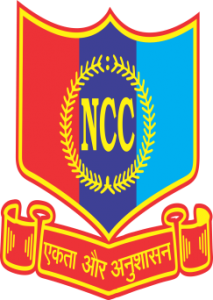 |
NCC (AIR WING)
|
 |
NCC (Air Wing) Officer: CTO, Asst. Prof. Thakur Akash Ashok (M.COM, MBA, MBS, DTL, GDC&A, PGDBM, CHM, DIT, NET)
Contact No. 9371566678
E-mail: thakurakash08@yahoo.in
The NCC Air Wing Open Unit started from 1963 in this college. The NCC Air Wing is running under NO.1 MAH AIR SQN NCC, Mumbai. Contribution of the NCC Air Wing gives tremendous success to the college as well as the Nation. This gives an opportunity to the NCC cadets for their future progress and development after completing ‘C’ Certificate of NCC. The intake of NCC Air Wing in this college is 50 Cadets.
STRUCTURE OF NCC AIR WING
- Strength of Cadets : 50 Cadets
- Reallocation of Cadets : 50 (67% Boys and 33%Girls) (SD:- 33 + SW:- 17)
- Day of the Parade : Sunday
- Time: 7:30 a.m. to 12:30 p.m.
- Total parade per Year:40 parades
- ‘B’ Certificate Examination: Conducted by NO.1 MAH AIR SQN NCC, Mumbai.
- ‘C’ Certificate Examination: Conducted by Mumbai “B” Group.
SELECTION PROCESS:
- Duration -3 year
- Enrollment in the month of July.
- Pre admission form.
- Responsibility and willingness certificate of Parents and Student
- Appear for physical test ( Running and physical exercise)
- Physical fitness and Certificate from MBBS Dr. regarding Physical fitness
- Medical certificate
- ‘B’ certificate for Third Year cadets
DOCUMENTS REQUIRED:
- Admission receipt/ I Card of College
- 12th std mark sheet
- Aadhar card
- Saving Account in National Bank
- Photo -5 copies
- Blood group certificate
ACTIVITIES:
- Regular parades
- Blood Donation
- Tree Plantation
- AIDS awareness
- Pulse Polio
- International Yoga day
- NCC day rally
- Cleanness Program.
- Any other social program.
- Every Year, Officers have to attend a minimum of one camp along with the cadets in any part of India. (National Camp- NIC)
- Every cadet has to attend a minimum of 75% parades throughout the year and at least one camp
- Various camps are conducted throughout the year. E.g. Annual Training Camp (ATC), Army Attachment Camp (AAC), Mountaineering Camp, Thal Sainik Camp (Army Wing) and Vayu Sainik Camp (Air Wing), Trekking Camp etc.
About NCC
THE ‘AIMS’ OF THE NCC:
The ‘Aims’ of the NCC laid out in 1988 have stood the test of time and continue to meet the requirements expected of it in the current socio–economic scenario of the country. The NCC aims at developing character, comradeship, discipline, and a secular outlook, the spirit of adventure and ideals of selfless service amongst young citizens. Further, it aims at creating a pool of organized, trained and motivated youth with leadership qualities in all walks of life, who will serve the Nation regardless of which career they choose. Needless to say, the NCC also provides an environment conducive to motivating young Indians to join the armed forces.
MOTTO OF NCC:
The need for having motto for the Corps was discussed in the 11th Central Advisory Committee (CAC) meeting held on 11 Aug 1978. The mottos suggested were “Duty and Discipline”; “Duty, Unity and Discipline”; “Duty and Unity”; “Unity and Discipline”. The final decision for selection of “Unity and Discipline” as motto for the NCC was taken in the 12th CAC meeting held on 12 Oct 1980.
CORE VALUES:
The NCC is a responsive, learning and continuously evolving organization. Its activity is guided by certain core values that we Endeavour to instill among all ranks of the NCC. These include the following.
(a) A sense of patriotic commitment to encourage cadets to contribute to national development.
(b) Respect for diversities in religion, language, culture, ethnicity, life style and habitat to instill a sense of National unity and social cohesion.
(c) Abiding commitment to learn and adhere to the norms and values enshrined in the Indian Constitution.
(d) Understanding the value of a just and impartial exercise of authority.
(e) Ability to participate in community development and other social program.
(f) A healthy life style free of substance abuse and other unhealthy practices.
(g) Sensitivity to the needs of poor and socially disadvantaged fellow citizens.
(h) Inculcating habits of restraint and self-awareness.
(i) Understanding the values of honesty, truthfulness, self-sacrifice, perseverance and hard work.
(j) Respect for knowledge, wisdom and the power of ideas.
